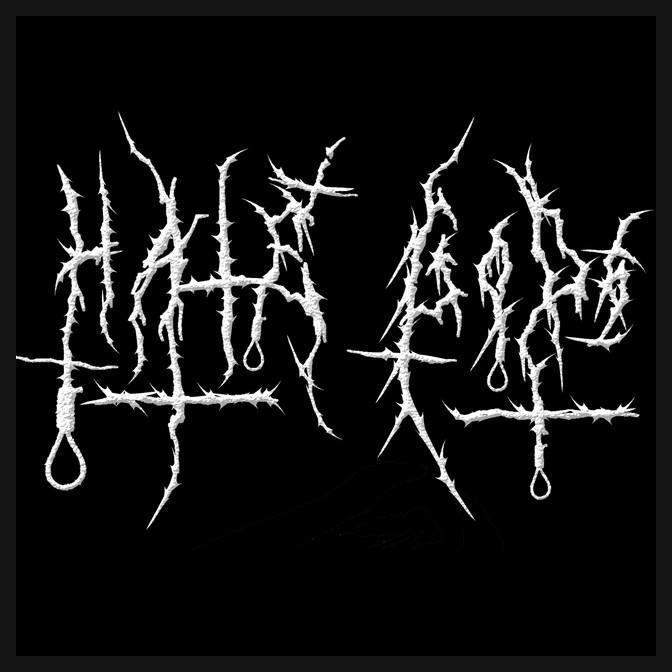 Hate Gods
Hate Gods
Hate Gods: A Journey of Industrial Darkness
Amidst the industrial and post-industrial landscape of the late 80s and early 90s, emerged a band that would leave an indelible mark on the genre: Hate Gods. Their raw, abrasive sound, introspective lyrics, and confrontational stage presence catapulted them to the forefront of the industrial music scene.
Formation and Early Challenges
Hate Gods was formed in 1988 in New Orleans by Mike IX Williams, a former member of the influential punk band False Prophets. Joined by guitarist Shaun Glass, bassist Aaron Rossi, and drummer Joe "Boot" McGinty, the band quickly garnered attention for their intense live performances and uncompromising music.
However, their path was not without obstacles. Williams's history of drug abuse and run-ins with the law threatened to derail the band's progress. Glass also struggled with substance abuse, which contributed to tensions within the group.
Controversies and Scandals
Hate Gods' music and lyrics were often met with controversy. Their songs explored themes of drug addiction, self-destruction, and social alienation, which resonated with a disenfranchised audience. However, their confrontational approach also drew criticism and censorship.
In 1992, the band's album "Helgram" was banned in the United Kingdom for its explicit lyrics. Williams's onstage antics, which included self-mutilation and drug use, further fueled the band's reputation as a dangerous and provocative act.
Discography and Musical Evolution
Despite the challenges, Hate Gods released a series of critically acclaimed albums that cemented their status as pioneers of industrial music. Their debut album, "Hate Gods," was a raw and uncompromising assault on the senses. "Self-Titled" explored themes of addiction and self-loathing, while "Helgram" pushed the boundaries of the genre with its experimental sound.
As the band evolved, so did their sound. "Incorruptible" introduced elements of electronics and samples, while "Christhunt" showcased a more polished and mature approach. Their latest album, "Exórdio," released in 2019, is a testament to the band's resilience and enduring influence.
Members and Legacy
Throughout their history, Hate Gods has undergone several lineup changes. The core members have remained Williams and McGinty, who have been joined by a revolving cast of musicians, including rhythm guitarist Larry Lifeless, bassist Steve Chancellor, and keyboardist Sean Martin.
Hate Gods' legacy extends beyond their music. They have inspired countless bands and artists in the industrial, rock, and metal genres. Their uncompromising stance against conformity and complacency has made them an enduring symbol of rebellion and authenticity.
Conclusion
Hate Gods' journey has been marked by both triumph and adversity. Their raw and confrontational music, coupled with their troubled past, have made them a polarizing force in the music industry. Yet, their enduring influence and unwavering commitment to their art have cemented their place as one of the most enduring and influential bands in the world of industrial music.
Amidst the industrial and post-industrial landscape of the late 80s and early 90s, emerged a band that would leave an indelible mark on the genre: Hate Gods. Their raw, abrasive sound, introspective lyrics, and confrontational stage presence catapulted them to the forefront of the industrial music scene.
Formation and Early Challenges
Hate Gods was formed in 1988 in New Orleans by Mike IX Williams, a former member of the influential punk band False Prophets. Joined by guitarist Shaun Glass, bassist Aaron Rossi, and drummer Joe "Boot" McGinty, the band quickly garnered attention for their intense live performances and uncompromising music.
However, their path was not without obstacles. Williams's history of drug abuse and run-ins with the law threatened to derail the band's progress. Glass also struggled with substance abuse, which contributed to tensions within the group.
Controversies and Scandals
Hate Gods' music and lyrics were often met with controversy. Their songs explored themes of drug addiction, self-destruction, and social alienation, which resonated with a disenfranchised audience. However, their confrontational approach also drew criticism and censorship.
In 1992, the band's album "Helgram" was banned in the United Kingdom for its explicit lyrics. Williams's onstage antics, which included self-mutilation and drug use, further fueled the band's reputation as a dangerous and provocative act.
Discography and Musical Evolution
Despite the challenges, Hate Gods released a series of critically acclaimed albums that cemented their status as pioneers of industrial music. Their debut album, "Hate Gods," was a raw and uncompromising assault on the senses. "Self-Titled" explored themes of addiction and self-loathing, while "Helgram" pushed the boundaries of the genre with its experimental sound.
As the band evolved, so did their sound. "Incorruptible" introduced elements of electronics and samples, while "Christhunt" showcased a more polished and mature approach. Their latest album, "Exórdio," released in 2019, is a testament to the band's resilience and enduring influence.
Members and Legacy
Throughout their history, Hate Gods has undergone several lineup changes. The core members have remained Williams and McGinty, who have been joined by a revolving cast of musicians, including rhythm guitarist Larry Lifeless, bassist Steve Chancellor, and keyboardist Sean Martin.
Hate Gods' legacy extends beyond their music. They have inspired countless bands and artists in the industrial, rock, and metal genres. Their uncompromising stance against conformity and complacency has made them an enduring symbol of rebellion and authenticity.
Conclusion
Hate Gods' journey has been marked by both triumph and adversity. Their raw and confrontational music, coupled with their troubled past, have made them a polarizing force in the music industry. Yet, their enduring influence and unwavering commitment to their art have cemented their place as one of the most enduring and influential bands in the world of industrial music.